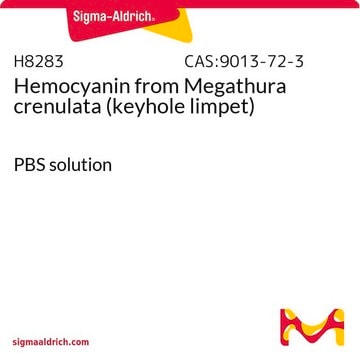L2913
Leptomycin B
from Streptomyces sp., ≥95% (HPLC), solution, anti-fungal antibiotic
Synonym(s):
Antibiotic CI 940, Elactocin, LMB, Mantuamycin
About This Item
Recommended Products
product name
Leptomycin B solution from Streptomyces sp., ≥95% (HPLC), Supplied in methanol: water (7:3)
Quality Level
Assay
≥95% (HPLC)
storage condition
protect from light
antibiotic activity spectrum
fungi
Mode of action
protein synthesis | interferes
shipped in
dry ice
storage temp.
−20°C
SMILES string
CCC(\C=C\[C@@H]1OC(=O)C=C[C@@H]1C)=C\[C@H](C)C\C=C\C(C)=C\[C@@H](C)C(=O)[C@@H](C)[C@H](O)[C@@H](C)C\C(C)=C\C(O)=O
InChI
1S/C33H48O6/c1-9-28(14-15-29-24(5)13-16-31(36)39-29)19-22(3)12-10-11-21(2)17-25(6)32(37)27(8)33(38)26(7)18-23(4)20-30(34)35/h10-11,13-17,19-20,22,24-27,29,33,38H,9,12,18H2,1-8H3,(H,34,35)/b11-10+,15-14+,21-17+,23-20+,28-19-/t22-,24+,25-,26+,27-,29+,33-/m1/s1
InChI key
YACHGFWEQXFSBS-XYERBDPFSA-N
General description
Biochem/physiol Actions
Signal Word
Danger
Hazard Statements
Precautionary Statements
Hazard Classifications
Acute Tox. 3 Dermal - Acute Tox. 3 Inhalation - Acute Tox. 3 Oral - Flam. Liq. 2 - STOT SE 1
Target Organs
Eyes
Storage Class Code
3 - Flammable liquids
WGK
WGK 2
Flash Point(F)
64.4 °F - closed cup
Flash Point(C)
18 °C - closed cup
Certificates of Analysis (COA)
Search for Certificates of Analysis (COA) by entering the products Lot/Batch Number. Lot and Batch Numbers can be found on a product’s label following the words ‘Lot’ or ‘Batch’.
Already Own This Product?
Find documentation for the products that you have recently purchased in the Document Library.
Customers Also Viewed
Our team of scientists has experience in all areas of research including Life Science, Material Science, Chemical Synthesis, Chromatography, Analytical and many others.
Contact Technical Service












